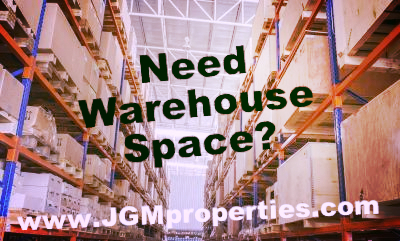Making the Most of your Warehouse Space: Maximizing Space When you can’t Expand
How to create more storage space in a warehouse or distribution center when a new facility isn’t cost-effective
E-commerce has forever changed warehousing and distribution centers. Not only do consumers expect instant gratification, they’ve changed their shopping habits. Products that were once only stocked and sold seasonally are now available year-round, and people take advantage of that. This kind of demand has DCs scrambling for more space.
According to Bill Leber, Director of Business Development for Swisslog, adding more space to accommodate growth is not necessarily wise. Companies may end up with more SKUs to make up sales, but revenues remain the same. Leber says about expansion, “Capital investment casts a long shadow. You have to buy land, a building, and new equipment. You need to be very sure about your business needs for a long time to come if you are going to make that choice.”
A better solution for many companies is to make more efficient use of their existing space. Most warehouses and DCs don’t see the numerous possibilities for expansion within their own facilities. Common solutions include:
- Adding vertical storage at/above loading docks and over work and pick areas
- Tunnel racking – utilizing space over cross aisles
- Building mezzanines for areas that require low clearance
- Temporary storage units, like offsite spaces or onsite trailers
- Automated inventory control
- Automated storage retrieval systems
The best decision for any company will depend on the following questions:
- How can you most efficiently use your space?
- What is the most economical means of storage as related to cost of equipment, use of space, damage to material, handling labor, and operational safety?
- How can you provide maximum flexibility to meet changing storage and handling requirements?
- Is your warehouse a model of good housekeeping?
- Does your plan allow for the most efficient material handling?
When it comes to a mater of material handling, space, flow paths, and new equipment, there is a solution you can implement immediately. A power mover, or power tug, is material handling equipment that is perfect for optimizing warehouse space.
The power tug is a compact unit that provides power for pushing and pulling tasks. It maneuvers around corners and through tight spaces – unlike forklifts that can’t fit through narrow pathways. It can move anything on wheels, including shelves, equipment, and temporary storage cubes. It can provide the capability to rearrange storage as product demands fluctuate.
A Load Mover powered tug is also far less expensive to maintain than other equipment like forklifts. Rather than buying lift trucks and adding huge long-term costs, existing forklifts can be used for vertical picking and sorting while power movers can move product on the floor level. Power tugs take up minimal space, leaving more room for your storage solution.
Power tugs enable workers to move more material in less time, and do it without injury, fatigue, or damage to the product. To discuss whether a power tug is a smart investment for your warehouse or DC, contact Load Mover, Inc. We are experts in the manufacturing and material handling industry. Call us at 952-767-1720 or email info@loadmoverinc.com.
via: Making the Most of your Warehouse Space: Maximizing Space When you can’t Expand

If you need a warehouse space in MN we have you covered…
https://jgmproperties.com/map-search/


